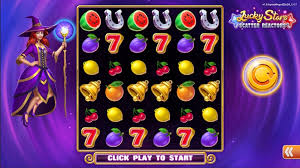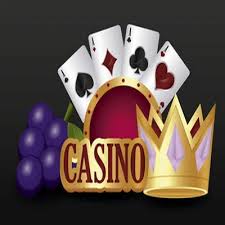
Exploring the World of LUCKY STAR: A Journey into Gaming and Popular Culture
In recent years, the phrase “LUCKY STAR” has gained traction in various pop culture spheres, particularly within the realms of anime and gaming. The term now embodies not just an emotion but a widespread acknowledgment of phenomena that combine luck, chance, and serendipity. As fans delve deeper into this fascinating subject, they find a treasure trove of characters, narratives, and community experiences that reflect the principles behind luck and fortune. For those interested in learning more about the charm of LUCKY STAR, LUCKY STAR Click here to explore deeper into this universe.
At the heart of the LUCKY STAR phenomenon is the anime series of the same name. First aired in 2007, LUCKY STAR was created by Yoshimizu Kagami and quickly captured the hearts of audiences. This slice-of-life comedy centers on the daily lives and antics of a group of high school girls, most notably Konata Izumi, whose unique personality attributes and comical interactions with friends draw viewers in. The series is celebrated for its sharp humor, clever references to Japanese culture, and delightful character dynamics.
The Characters of LUCKY STAR
Central to LUCKY STAR’s appeal are its characters. Each one embodies unique traits that resonate with different segments of the audience. Konata Izumi, the protagonist, is often depicted as a lazy yet passionate video game enthusiast, balancing her responsibilities with her hobbies. Her obsession with gaming and otaku culture makes her relatable to many viewers who find themselves torn between their passions and societal obligations.

The Cultural Impact of LUCKY STAR
LUCKY STAR has not only gained popularity for its character-driven narratives but has also had a lasting impact on Otaku culture. It popularized several tropes, memes, and references that have transcended its original anime format. Viewers and fans started adopting phrases from the show, participating in cosplay, and generating a diverse array of fan art. The cultural reach of LUCKY STAR illustrates how a simple animated series can foster an entire movement centered around shared interests and niche fandoms.
Gaming Connections
For fans of gaming, LUCKY STAR cleverly intertwines the culture with various video game references and parodies, adding layers of enjoyment for players. The series often mentions popular gaming titles and characters, making it a joy for gamers to catch those references. The humor is enriched by how relatable the gaming experiences are to everyday life scenarios faced by the characters. As a result, the intertwining of gaming and anime serves as a strong glue that bonds fans over shared experiences.
Merchandising and Spin-offs
The success of LUCKY STAR led to a plethora of merchandise, including figurines, art books, and apparel, allowing fans to express their admiration for the series in tangible ways. Its strong character design and memorable catchphrases have made it a goldmine for creative marketing. Spin-offs, manga adaptations, and art collaborations further solidify the role of LUCKY STAR in popular culture.

The Otaku Phenomenon
The representation of Otaku culture within LUCKY STAR paved the way for deeper conversations around the lifestyle of fans who engage deeply with gaming and anime. The show demystifies the stereotypical images of Otaku, providing a more nuanced view that highlights camaraderie, friendship, and shared passion rather than simply isolating characters into socially awkward personas. The relatability of the characters and their experiences make LUCKY STAR a significant piece of media that portrays the strengths of Otaku culture.
LUCKY STAR – A Timeless Classic
Over the years, LUCKY STAR has gained a reputation as a timeless classic. Its blend of comedy, cultural references, and heartwarming friendships appeals to both new and long-time anime enthusiasts alike. The show’s ability to evoke a sense of nostalgia while staying relevant in today’s landscape of anime ensures its place in the annals of anime history.
Conclusion
In conclusion, LUCKY STAR stands out not only as a beloved anime series but as a cultural phenomenon that represents the intersection of gaming, anime, and the camaraderie of fans. Through its engaging characters, clever writing, and cultural significance, it continues to inspire and connect audiences. Whether you’re a seasoned otaku or new to the world of anime, LUCKY STAR is an experience that speaks to the universal themes of luck, friendship, and the joys of pursuing one’s passions. Dive into its world and discover how it resonates with your journey through gaming and beyond!